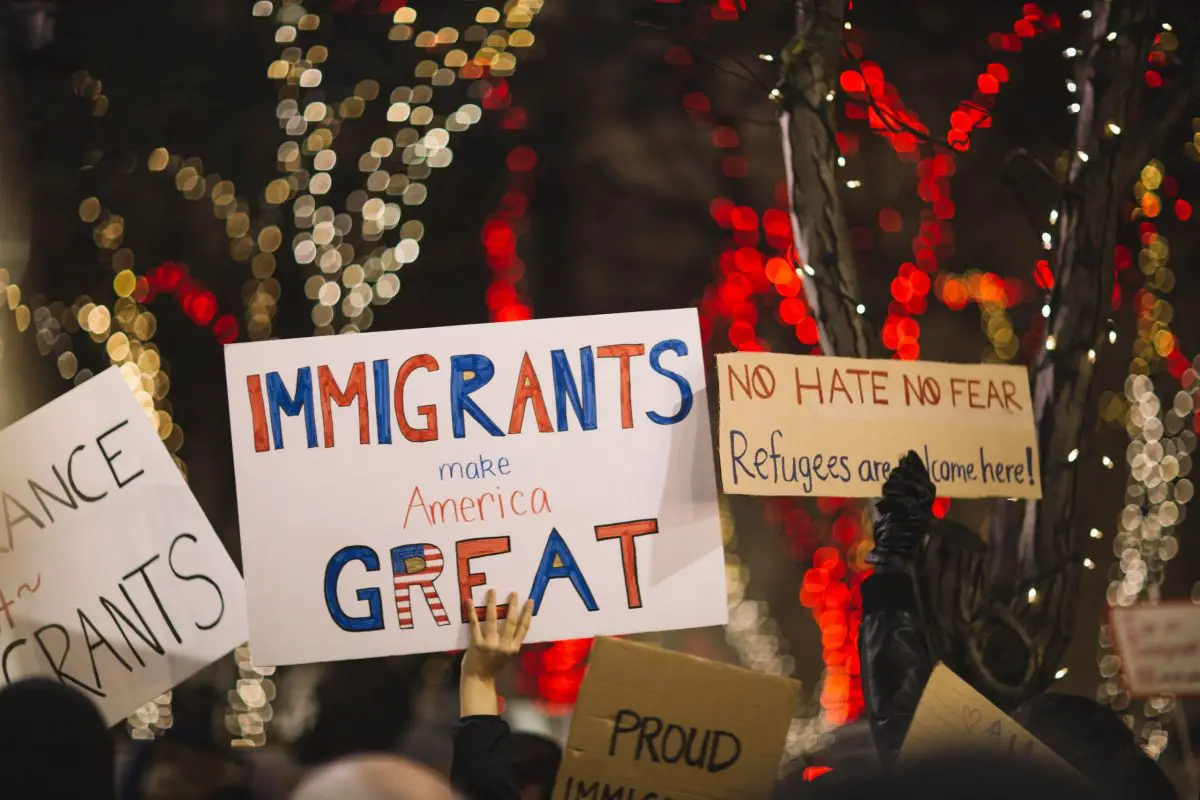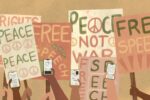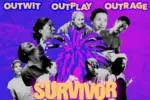Between November’s recent elections, impeachment hearings, #MeToo campaigns, Facebook debates, climate change summits and countless marches and rallies, our society is awash in justice activism and political discourse. Such dialogue between citizens and policymakers fosters a relationship that hopefully builds a more transparent and open democracy — even if the parties disagree in their political sentiments. Unfortunately, however, many advocacy groups prescribe to an all-or-nothing mentality that drives away those people who are not as visibly active.
Historically, advocacy groups formed in response to specific social issues and took a targeted approach in tackling those causes. Abolitionists fought for the emancipation of slaves, suffragettes for women’s voting rights, the labor movement for better working conditions and the civil rights movement for racial equality. Although the beliefs and members of these groups certainly overlapped, they were still separate and distinct entities with focused missions.
Modern advocacy breaks from this model in its conglomerating of all forms of social justice under the title of “activism.” There might be marches and rallies for specific campaigns (such as the Women’s March on Washington, the Black Lives Matter Movement and the Global Climate Strike) but these do not hold the same rigid categorial boundaries as their predecessors.
On the one hand, a catch-all category facilitates cooperation and mutual understanding. Just as the women’s rights movement emerged from the abolitionist movement and the gay rights movement reflected on the civil rights movement, today’s advocacy groups are intrinsically intertwined. Modern advocacy targets the very idea of injustice as much as it works toward specific causes. Decades ago, Martin Luther King Jr. expressed similar sentiments in his “Letter from Birmingham Jail”:
“Injustice anywhere is a threat to justice everywhere. We are caught in an inescapable network of mutuality, tied in a single garment of destiny. Whatever affects one directly, affects all indirectly.”
But, on the other hand, uniformity also leads to an unrealistic expectation that people are capable of being actively involved in every fight or campaign. Describing someone as an activist conjures images of carrying signs, leading marches, delivering speeches and participating in protests. This definition leads advocacy groups to exclude, ostracize and even outright condemn those who are not quite so outspoken.
“While it is true that few people care with the passion of an activist … there are many people who passively care,” writes Chris Preist in The Guardian. “They would rather factories didn’t fall down. They would rather workers earned enough to live on. They care a bit, and would like things to be different, but aren’t going to change their actions or think a lot about it. This is partly because there are many other more immediate cares and concerns on their mind and partly because they feel powerless and guilty if they do think about it.”
So, in that sense, not everyone can be an “activist” for every issue, and that’s okay. But ignoring injustices because they do not directly affect your life or your pre-selected “activist” work, well, that’s not okay. The issue, then, is not with the system of social activism nor with the unification of social issues, but with implications attached to the “activist” label itself.
“The idea of an ‘activist’ has to be redefined,” urges Women’s March co-chair Linda Sarsour. “An activist is anyone who cares about something and has a talent that they’re willing to put toward that thing. So anyone can be an activist. Anyone can support the work of the movement.”
Sarsour notes how the Women’s March did not come to fruition because of movers-and-shakers like herself, Tamika Mallory and Carmen Perez, but because of everyday writers who wove together speeches, graphic designers who created the branding and social media coordinators who spread the message. Taking this notion one step further, Aaisha Bhuiyan, an ambassador for the United State of Women, notes that one need not even be involved in a formal campaign to be an activist.
“Occupying space in your work fields, earning and owning your education, and using your voice in a meeting are all forms of activism.” she tells Forbes. “Standing up to verbal and physical assault on the streets is activism, but also, educating your racist uncle at the dinner table is activism. Your existence is activism, your representation is activism, and your allyship is activism.”
In order for modern social justice advocacy to mend the schism between “active” and “passive” activists, it must first kill the implication that passive activists are unethical or “not woke” to social issues. Lack of resources, power, confidence or courage all play a role in one’s degree of advocacy involvement. Second, it must abandon its formulation of an ideal activist. Activists are not sages imbued with great wisdom for which everyone ought to strive, but seldom achieve.
“If you call yourself an activist,” writes Pratt Institute professor Evan Neely, “it says to people there’s a certain kind of person called ‘the activist,’ and you can choose to be one … or choose not to be one … Really, anyone who sees an injustice should, simply by being able to say ‘that’s unjust,’ feel compelled to do something about it, no matter who they think they are as a person.”
The social justice community officially united under the umbrella of “activists-doing-activism” and, for a while, that conceptualization worked terrifically. But it became a way of gatekeeping people from movements, due to how they express activism, and even allows people to simply detach themselves from the plight of others which, in such an interconnected society, is no longer possible nor acceptable.
The time for any “activism terminology” is over. Society can no longer comfortably divide itself between activists and non-activists because that is no longer the reality. Echoing Dr. King, society either strives for justice and basic human decency in every situation, or has abandoned the principle altogether.
















